- Clone
- CO17-1A (See other available formats)
- Regulatory Status
- RUO
- Other Names
- Ep-CAM, tumor associated calcium signal transducer 1, epithelial cell surface antigen, epithelial glycoprotein 2, EGP2, adenocarcinoma associated antigen, TROP1
- Isotype
- Mouse IgG2a, κ
- Ave. Rating
- Submit a Review
- Product Citations
- publications
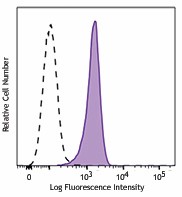
-

Human colon carcinoma cell line HT29 was stained with CD326 (clone CO17-1A) Alexa Fluor™ 488 (filled histogram) or mouse IgG2a, κ Alexa Fluor™ 488 isotype control (open histogram).
| Cat # | Size | Price | Quantity Check Availability | Save | ||
|---|---|---|---|---|---|---|
| 369807 | 25 tests | 141 CHF | ||||
| 369808 | 100 tests | 293 CHF | ||||
CD326 is also known as EpCAM, tumor associated calcium signal transducer 1, epithelial cell surface antigen, epithelial glycoprotein 2, EGP2, adenocarcinoma associated antigen, and TROP1. CD326 is a type I transmembrane protein containing six disulfide bridges and one THYRO domain. This cell surface glycosylated 40 kD protein is highly expressed in bone marrow, colon, lung, and most normal epithelial cells and is expressed on carcinomas of gastrointestinal origin. Recently, it has been reported that CD326 expression occurs during the early steps of erythrogenesis. CD326 functions as a homotypic calcium-independent cell adhesion molecule and is believed to be involved in carcinogenesis by its ability to induce genes involved in cellular metabolism and proliferation. CD326 antigen is an immunotherapeutic target for the treatment of human carcinomas.
Product DetailsProduct Details
- Verified Reactivity
- Human
- Antibody Type
- Monoclonal
- Host Species
- Mouse
- Formulation
- Phosphate-buffered solution, pH 7.2, containing 0.09% sodium azide and BSA (origin USA)
- Preparation
- The antibody was purified by affinity chromatography and conjugated with Alexa Fluor® 488 under optimal conditions.
- Concentration
- Lot-specific (to obtain lot-specific concentration and expiration, please enter the lot number in our Certificate of Analysis online tool.)
- Storage & Handling
- The antibody solution should be stored undiluted between 2°C and 8°C, and protected from prolonged exposure to light. Do not freeze.
- Application
-
FC - Quality tested
- Recommended Usage
-
Each lot of this antibody is quality control tested by immunofluorescent staining with flow cytometric analysis. For flow cytometric staining, the suggested use of this reagent is 1 µl per million cells or 1 µl per 100 µl of whole blood. It is recommended that the reagent be titrated for optimal performance for each application.
* Alexa Fluor® 488 has a maximum emission of 519 nm when it is excited at 488 nm.
Alexa Fluor® and Pacific Blue™ are trademarks of Life Technologies Corporation.
View full statement regarding label licenses - Excitation Laser
-
Blue Laser (488 nm)
-
Application References
(PubMed link indicates BioLegend citation) -
- Strnad J, et al. 1989. Cancer Res. 49:314.
- Munz M, et al. 2004. Oncogene 23:5748.
- Rao CG, et al. 2005. Int. J. Oncol. 27:49.
- RRID
-
AB_2650904 (BioLegend Cat. No. 369807)
AB_2650904 (BioLegend Cat. No. 369808)
Antigen Details
- Structure
- Type I transmembrane protein, contains six disulfide bridges, one THYRO domain, approximate molecular weight 40 kD.
- Distribution
-
Highly expressed in bone marrow, colon, lung, and most normal epithelial cells. Also highly expressed on carcinomas of gastrointestinal origin. Expressed during early erythrogenesis.
- Function
- Homotypic calcium-independent cell adhesion. CD326 is believed to be involved in carcinogenesis by its ability to induce genes involved in cellular metabolism and proliferation.
- Cell Type
- Epithelial cells
- Biology Area
- Cancer Biomarkers, Cell Biology, Cell Proliferation and Viability, Immunology
- Molecular Family
- Adhesion Molecules, CD Molecules
- Antigen References
-
1. Strnad J, et al. 1989. Cancer Res. 49:314.
2. Munz M, et al. 2004. Oncogene 23:5748.
3. Rao CG, et al. 2005. Int. J. Oncol. 27:49. - Gene ID
- 4072 View all products for this Gene ID
- UniProt
- View information about CD326 on UniProt.org
Related Pages & Pathways
Pages
Related FAQs
Other Formats
View All CD326 Reagents Request Custom Conjugation| Description | Clone | Applications |
|---|---|---|
| Alexa Fluor® 647 anti-human CD326 (EpCAM) | CO17-1A | FC |
| APC anti-human CD326 (EpCAM) | CO17-1A | FC |
| PE/Cyanine7 anti-human CD326 (EpCAM) | CO17-1A | FC |
| PerCP/Cyanine5.5 anti-human CD326 (EpCAM) | CO17-1A | FC |
| PE anti-human CD326 (EpCAM) | CO17-1A | FC |
| FITC anti-human CD326 (EpCAM) | CO17-1A | FC |
| Alexa Fluor® 488 anti-human CD326 (EpCAM) | CO17-1A | FC |
| Biotin anti-human CD326 (EpCAM) | CO17-1A | FC |
| Brilliant Violet 421™ anti-human CD326 (EpCAM) | CO17-1A | FC |
| Purified anti-human CD326 (EpCAM) | CO17-1A | FC |
Customers Also Purchased
Compare Data Across All Formats
This data display is provided for general comparisons between formats.
Your actual data may vary due to variations in samples, target cells, instruments and their settings, staining conditions, and other factors.
If you need assistance with selecting the best format contact our expert technical support team.
-
Alexa Fluor® 647 anti-human CD326 (EpCAM)
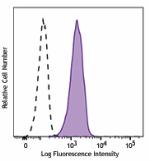
Human colon carcinoma cell line HT29 was stained with CD326 ... -
APC anti-human CD326 (EpCAM)
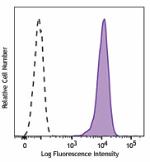
Human colon carcinoma cell line HT29 was stained with CD326 ... -
PE/Cyanine7 anti-human CD326 (EpCAM)
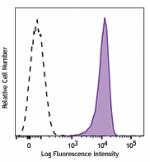
Human colon carcinoma cell line HT29 was stained with CD326 ... -
PerCP/Cyanine5.5 anti-human CD326 (EpCAM)
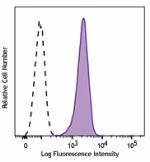
Human colon carcinoma cell line HT29 was stained with CD326 ... -
PE anti-human CD326 (EpCAM)
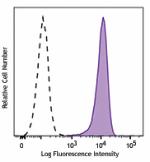
Human colon carcinoma cell line HT29 was stained with CD326 ... -
FITC anti-human CD326 (EpCAM)
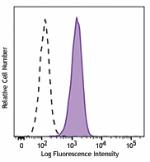
Human colon carcinoma cell line HT29 was stained with CD326 ... -
Alexa Fluor® 488 anti-human CD326 (EpCAM)
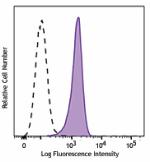
Human colon carcinoma cell line HT29 was stained with CD326 ... -
Biotin anti-human CD326 (EpCAM)
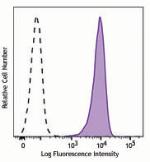
Human colon carcinoma cell line HT29 was stained with biotin... -
Brilliant Violet 421™ anti-human CD326 (EpCAM)
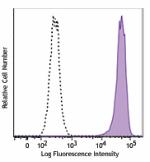
Human colon carcinoma cell line HT29 was stained with Brilli... -
Purified anti-human CD326 (EpCAM)
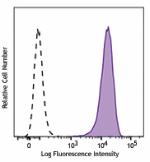
Human colon carcinoma cell line HT29 was stained with purifi...

 Login / Register
Login / Register 










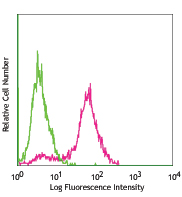
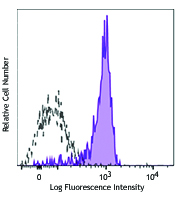
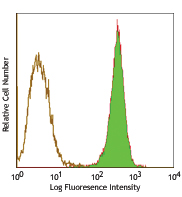




Follow Us